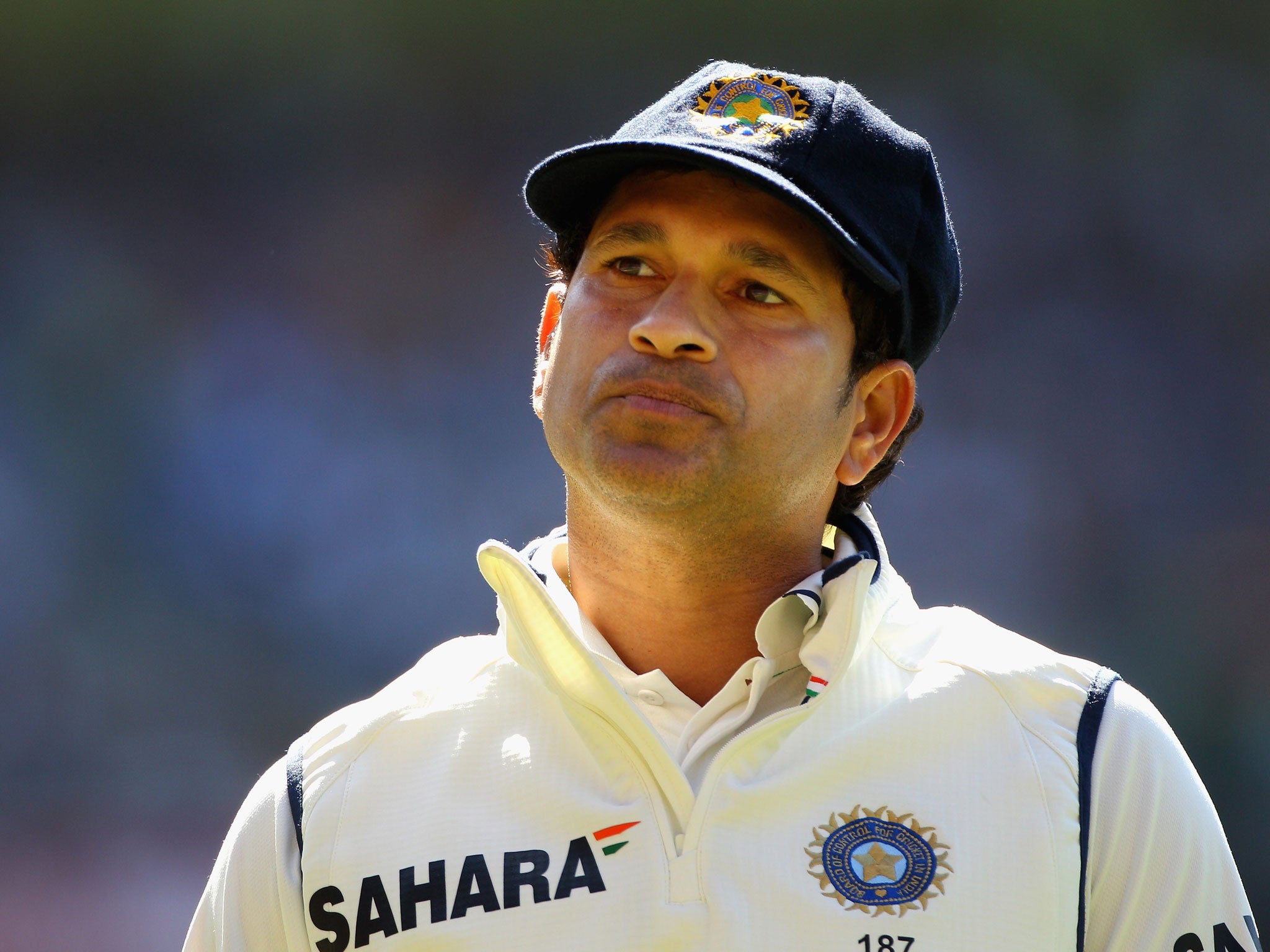Sachin Tendulkar's injustice opens door for DRS
The Indian batsman's dismissal for 10 in the first innings of his penultimate Test can only have helped DRS's entire case

The comprehensive use of the Decision Review System in the Ashes has received timely encouragement from a match being played nearly 6,000 miles away. It now seems certain that the imminent series will be the first to have the Hot Spot camera being combined with instant Snicko, a pairing that may come to have the same potency in the game as Fred Trueman and Brian Statham.
Sachin Tendulkar's dismissal for 10 in the first innings of his penultimate Test can only have helped DRS's entire case. Almost as soon as the English umpire, Nigel Llong, gave Tendulkar out to the West Indies spinner Shane Shillingford in Kolkata, doubts were cast on the decision.
The ball hit Tendulkar high on the pad and the HawkEye gizmo on the television coverage almost immediately showed that it was going well over the top of the stumps. But Tendulkar had no right to ask for the verdict to be overturned because India have steadfastly declined to use DRS.
Although it is the official policy of the ICC, the Indian board distrusts it because the board claims the technology is not foolproof. If anything is likely to convince India of DRS's virtues it is the nation's hero being denied the opportunity to complete his remarkable career in appropriate style because of an official's error.
That solitary decision will certainly have positive repercussions for the Ashes. Both sides have already agreed that DRS will be used in the series but there has been doubt about what form it will take.
It was initially announced that Hot Spot, which made a contentious contribution to several innings during the series between England and Australia last summer, would not be used. The high cost was given as the reason but that always seemed only an excuse.
After some delicate negotiations that decision appears to have been reversed and both sides are now also keen to use the new real-time Snicko. The device detects sound and until recently was incapable of processing its findings for five minutes – too long even in the high theatre of Test cricket.
Tests have been conducted on the accuracy of the improved version and England and Australia have declared themselves satisfied with it. Their remaining concern is not the technology itself but the way the evidence is interpreted by the third umpire.
The teams have asked the ICC's approval to use Snicko and Hot Spot as well as the Australian version of HawkEye, and it is difficult to see it being refused. The ICC's leading officials have been constant proponents of DRS in all its guises and, in effect, since it is a bilateral series, England and Australia can play it to what regulations they want with or without ICC blessing.
Tendulkar once had the benefit of DRS. During India's World Cup semi-final against Pakistan in 2011 he was given out lbw by another English umpire, Ian Gould, and looked stone dead. As it was an ICC competition, India were compelled to be part of the DRS system and Tendulkar immediately referred the decision. Astonishingly, replays showed the ball was sliding past leg stump and the batsman, thus reprieved on 23, went on to make 85. That innings effectively saw India through to the final, which they won.
That still was insufficient evidence to change India's mind on the issue. But if Tendulkar's final days were to be blighted by error it would be considered by his millions of worshippers a travesty. Indeed, it is not beyond the bounds of possibility that India will come on board for DRS in time for the Little Master's final Test of all next week.
England were frustrated by the lack of play on the second day of their tour match against Australia A. Although rain had cleared by mid-afternoon the bowlers' run-ups had been inadequately covered and were still greasy. The tourists wanted to play, the Australians did not. The umpires erred on the side of caution.
Subscribe to Independent Premium to bookmark this article
Want to bookmark your favourite articles and stories to read or reference later? Start your Independent Premium subscription today.

Join our commenting forum
Join thought-provoking conversations, follow other Independent readers and see their replies